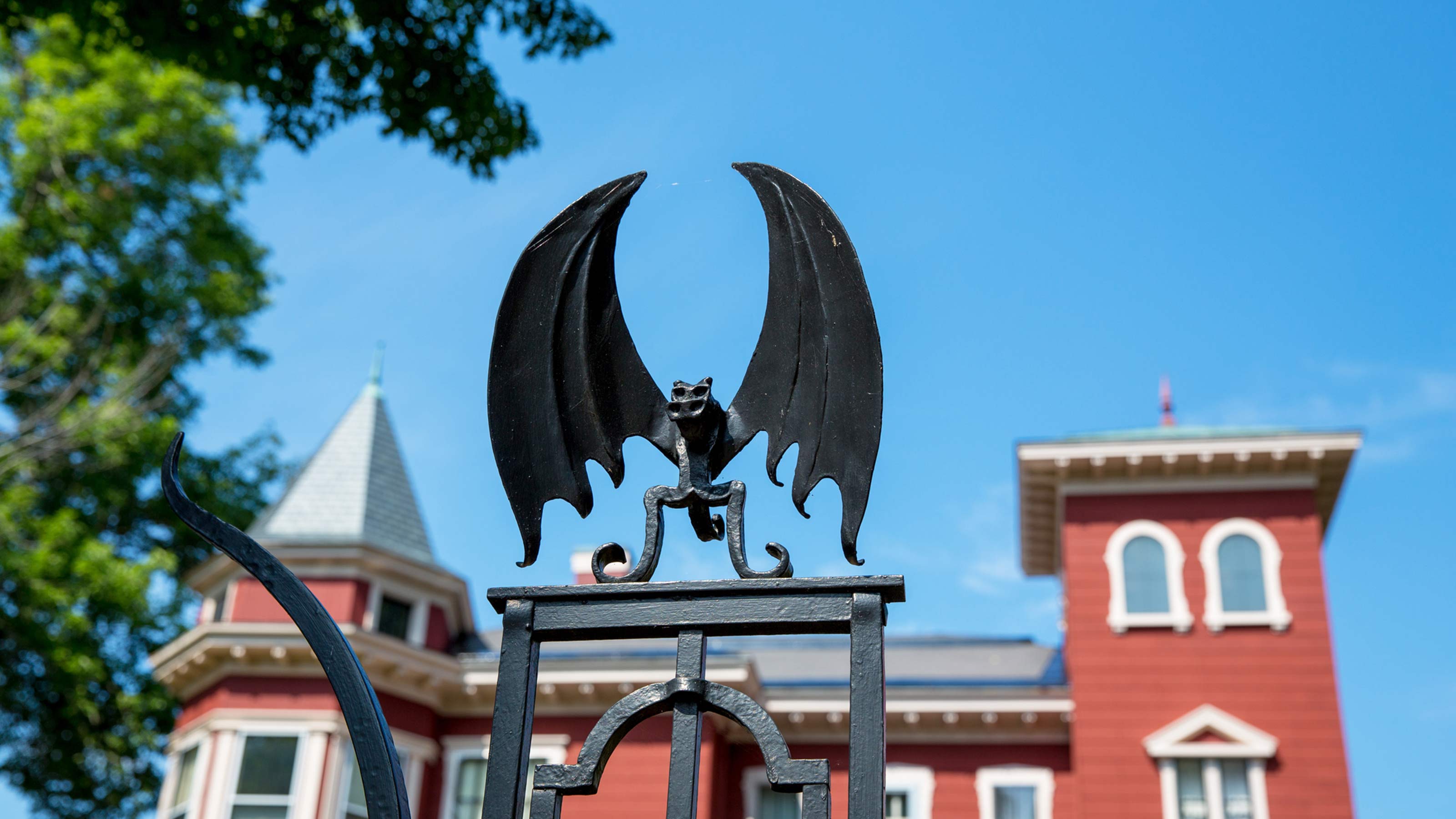18 States With Scary Estate and Inheritance Taxes
Over a dozen states currently impose estate or inheritance taxes on heirs. Here’s where you’ll have to pay.


Gabriella Cruz-Martínez
Unless you’re reading this from the deck of your superyacht, you probably don’t have to worry about federal estate taxes. In 2024, only estates worth $13.61 million or more ($27.22 million or more for a married couple) are hit by federal estate taxes, and only a small percentage of Americans have accumulated that much wealth.
State taxes are another story. Several states have reduced or eliminated their estate and inheritance taxes to dissuade well-off retirees from moving to more tax-friendly jurisdictions.
However, 12 states and Washington, D.C., still impose an estate tax, and six states have an inheritance tax. Maryland has both.
Note: An estate tax is levied on the deceased's estate, while an inheritance tax is paid by heirs subject to the tax (spouses are usually exempt).
States with an inheritance tax or estate tax
Even if you don’t consider yourself particularly wealthy, the value of your home and funds in your retirement savings could exceed the estate tax threshold in some states.
With that in mind, if you live in a state that imposes an estate or inheritance tax—and you don’t plan to move — you may want to talk to a certified financial planner or tax professional about steps to reduce the size of your estate.
Let’s dive into the 18 states where the wealthiest taxpayers may face scary death taxes.

Connecticut
Estate tax exemption: $13.61 million
Estate tax rate: 12%
The Constitution State’s estate tax exemption is the same as the federal estate tax exemption, and the tax due is limited to $15 million. However, Connecticut is the only state that imposes a gift tax on assets you give away while you’re alive.
If you make taxable gifts during the year that exceed $18,000—the federal gift tax exclusion for 2024—state law requires that you file a Connecticut estate and gift tax return. In 2024, you’ll owe taxes if the aggregate value of gifts made since 2005 exceeds $13.61 million. The state imposes estate and gift taxes at a flat 12% rate.

District of Columbia
Estate tax exemption level: $4,715,600
Estate tax rates: 11.2%–16%
For 2024, Washington, D.C., estates valued at more than $4,715,600 are subject to a city estate tax, at rates ranging from 11.2% to 16%.

Hawaii
Estate tax exemption level: $5.49 million
Estate tax rates: 10%–20%
At $5.49 million, the Aloha State has one of the higher state estate tax exclusion amounts, though it isn’t adjusted annually for inflation. The current Hawaii estate tax rates range from 10% to 20%. For 2024, the gift tax exclusion is $18,000 (up from $17,000 the previous year).

Illinois
Estate tax exemption level: $4 million
Estate tax rates: 0.8%–16%
The Illinois $4 million exemption (after inclusion of adjusted taxable gifts) is lower than the federal exemption and isn’t adjusted annually for inflation. Republican lawmakers in the state have proposed repealing or moderating the tax, arguing that it would keep more people in the state. So far, those efforts have been unsuccessful.

Iowa
Inheritance tax: Yes
Inheritance tax rates: 0% to 2%, to be eliminated in 2025
The Hawkeye State is in the process of phasing out its inheritance tax, but it won’t be eliminated until 2025. In the meantime, it currently has the lowest inheritance tax rate in the nation at just 2%.
In the meantime, estates worth less than $25,000 are exempt. In addition, no tax is due on property inherited by a spouse, parent, grandparent, great-grandparent, child, stepchild, grandchild, or great-grandchild.
In 2024, brothers, sisters, sons-in-law, and daughters-in-law in Iowa will be hit with a 1% to 2% tax, depending on the value of the property they inherit. Uncles, aunts, nieces, nephews and all other heirs will be taxed at rates ranging from 2% to 3%. The tax will disappear in 2025.

Kentucky
Inheritance tax: Yes
Inheritance tax rates: 0% to 16%
As with other states with an inheritance tax, the amount of tax owed in the Bluegrass State depends on the heir’s relationship to the person who died and the value of the inherited property.
The tax isn’t an issue for spouses, parents, children, grandchildren and siblings. They’re all exempt from Kentucky’s inheritance tax.
However, the Kentucky tax can be a nightmare for other heirs. Nieces, nephews, daughters-in-law, sons-in-law, aunts, uncles, and great-grandchildren are taxed at rates ranging from 4% to 16%, depending on the value of the property inherited. The first $1,000 of property is exempt.
All other heirs are taxed at rates ranging from 6% to 16%; for those heirs, only the first $500 of inherited property is exempt.

Maine
Estate tax exemption level: $6.8 million
Estate tax rates: 8%–12%
For 2024, the Pine Tree State’s estate tax applies to estates worth more than $6.8 million; the amount is adjusted each year for inflation. However, the top estate tax rate in Maine is only 12%, which is tied with Connecticut for the lowest top estate tax rate in the nation.

Maryland
Estate tax exemption level: $5 million
Estate tax rate: 0.9%–16%
Inheritance tax rate: 0%–10%
Maryland is the only state in the country that has both an estate tax and an inheritance tax. The Free State’s estate tax exemption of $5 million in 2024 includes any predeceased spouse’s unused exclusion amount. Rates range from 0.9% to 16%.
Although Maryland also has an inheritance tax with a flat 10% rate, the list of heirs exempt from paying it includes the decedent’s spouse, parents, grandparents, children, grandchildren, siblings, sons-in-law, daughters-in-law and the surviving spouse of a deceased child.

Massachusetts
Estate tax exemption level: $2 million
Estate tax rates: 0.8%–16%
With an exemption of just $2 million, the Bay State is less friendly to estates than most other states, including neighboring Rhode Island and Connecticut, which also impose estate taxes. Massachusetts provides an unlimited marital deduction for property left to a surviving spouse and an unlimited deduction for property left to a qualified charity.

Minnesota
Estate tax exemption level: $3 million
Estate tax rates: 13%–16%
Like most states on this list, the North Star State has an exclusion that is significantly lower than the federal estate tax exemption. In addition, Minnesota looks back to include as part of your estate any taxable gifts made within three years prior to death. Tax rates range from 13% to 16%.

Nebraska
Inheritance tax: Yes
Inheritance tax rates: 0%–15%
With Nebraska’s inheritance tax, the closer the heir’s relationship to the decedent, the smaller the tax rate and the greater the exemption. Spouses are exempt from the tax. In addition, effective this year, the state’s inheritance tax doesn’t apply to any heir who is 21 or younger, regardless of their relationship to the decedent.
The tax on other heirs who are immediate relatives, such as parents, grandparents, siblings, and children, is only 1% and doesn’t apply to property that is worth less than $100,000.
For certain relatives outside the immediate family, including uncles, aunts, nieces, and nephews, the Nebraska tax rate is 11%, and the exemption amount is $40,000. For all other heirs, the tax is imposed at a 15% rate on property worth $25,000 or more.

New Jersey
Inheritance tax: Yes
Inheritance tax rates: 0%–16%
The Garden State imposes a tax on inherited property with a value of $500 or more. However, the decedent’s spouse, domestic partner, parents, grandparents, children and grandchildren are exempt from inheritance taxes in New Jersey.
The first $25,000 of property inherited by a decedent’s sibling, son-in-law or daughter-in-law is also exempt. After that, those heirs must pay the inheritance tax at rates ranging from 11% to 16%. All other individual heirs pay a 15% tax on the first $700,000 of inherited property and a 16% tax on everything over $700,000.

New York
Estate tax exemption: $6.94 million
Estate tax rates: 3.06%–16%
New York’s estate tax exemption is adjusted each year for inflation, and rates range from 3.06% to 16%. Taxable gifts made by the decedent as a New York resident within three years prior to death are included as part of the estate.
Notably, New York’s estate tax is a “cliff tax.” That means if the value of the estate is more than 105% of the current exemption, the entire estate will be subject to state estate tax.

Oregon
Estate tax exemption level: $1 million
Estate tax rates: 10%–16%
The Beaver State is the worst place in the U.S. to die if you’re concerned about estate taxes. Oregon has resisted the trend to raise its estate tax exemption or even adjust it for inflation. In addition to taxing estates valued at as little as $1 million, Oregon imposes a relatively high minimum tax rate of 10% on even the smallest of qualifying estates.

Pennsylvania
Inheritance tax: Yes
Inheritance tax rates: 0%–15%
Although the Keystone State has no estate tax, the inheritance tax in Pennsylvania could prove costly for adult children and other heirs. Spouses and the decedent’s parents (if the decedent was age 21 or younger) are exempt. There is also no tax on property inherited from a member of the military who died as a result of an illness or injury incurred while on active duty.
However, children and grandchildren will pay a 4.5% inheritance tax, siblings will pay 12%, and all other heirs will pay 15%. A 5% discount is allowed if the tax is paid within three months of the decedent’s death.

Rhode Island
Estate tax exemption level: $1.77 million
Estate tax rates: 0.8%–16%
Although the Ocean State adjusts its estate tax exemption annually for inflation, The Rhode Island exemption amount is one of only three in the nation that are less than $2 million. Rates range from 0.8% to 16%.

Vermont
Estate tax exemption level: $5 million
Estate tax rate: 16%
Unlike most other states with an estate tax, Vermont doesn’t impose a graduated estate tax rate. Assets that exceed the $5 million exemption are taxed at a flat rate of 16%.

Washington
Estate tax exemption level: $2.193 million
Estate tax rates: 10%–20%
Washington has no personal income tax (but it has a state capital gains tax), so it’s not surprising that it looks elsewhere for revenue. Its estate tax exemption of $2.193 million is adjusted annually for inflation. Tax rates range from 10% to 20%. The state offers an additional $2.5 million deduction for qualified family-owned businesses valued at less than $6 million.
Profit and prosper with the best of Kiplinger's advice on investing, taxes, retirement, personal finance and much more. Delivered daily. Enter your email in the box and click Sign Me Up.

Block joined Kiplinger in June 2012 from USA Today, where she was a reporter and personal finance columnist for more than 15 years. Prior to that, she worked for the Akron Beacon-Journal and Dow Jones Newswires. In 1993, she was a Knight-Bagehot fellow in economics and business journalism at the Columbia University Graduate School of Journalism. She has a BA in communications from Bethany College in Bethany, W.Va.
- Gabriella Cruz-MartínezTax Writer
-
 Can the U.S. Break China's Stranglehold on Critical Minerals?
Can the U.S. Break China's Stranglehold on Critical Minerals?The Letter China is using its near-monopoly on critical minerals to win trade concessions. Can the U.S. find alternate supplies?
-
 Don't Let a "Clunker" Fund Drag Down Your 401(k)
Don't Let a "Clunker" Fund Drag Down Your 401(k)401(k) lineups are loaded with overpriced, underperforming fund options. Here's how you can dump the clunkers.
-
 What to Do With Your Tax Refund: 6 Ways to Bring Growth
What to Do With Your Tax Refund: 6 Ways to Bring GrowthUse your 2024 tax refund to boost short-term or long-term financial goals by putting it in one of these six places.
-
 What Does Medicare Not Cover? Eight Things You Should Know
What Does Medicare Not Cover? Eight Things You Should KnowHealthy Living on a Budget Medicare Part A and Part B leave gaps in your healthcare coverage. But Medicare Advantage has problems, too.
-
 12 Great Places to Retire in the Midwest
12 Great Places to Retire in the MidwestPlaces to live Here are our retirement picks in the 12 midwestern states.
-
 10 Cheapest Small Towns to Live In
10 Cheapest Small Towns to Live InThe cheapest small towns might not be for everyone, but their charms can make them the best places to live for plenty of folks.
-
 15 Reasons You'll Regret an RV in Retirement
15 Reasons You'll Regret an RV in RetirementMaking Your Money Last Here's why you might regret an RV in retirement. RV-savvy retirees talk about the downsides of spending retirement in a motorhome, travel trailer, fifth wheel, or other recreational vehicle.
-
 The 24 Cheapest Places To Retire in the US
The 24 Cheapest Places To Retire in the USWhen you're trying to balance a fixed income with an enjoyable retirement, cost of living is a crucial factor to consider.
-
 The Six Best Places to Retire in New England
The Six Best Places to Retire in New Englandplaces to live Thinking about a move to New England for retirement? Here are the best places to land for quality of life, affordability and other criteria.
-
 Estate Planning Checklist: 13 Smart Moves
Estate Planning Checklist: 13 Smart Movesretirement Follow this estate planning checklist for you (and your heirs) to hold on to more of your hard-earned money.
